當(dāng)前位置: Language Tips> 雙語新聞
分享到
習(xí)近平主席于今明兩天訪問伊朗,這是中國國家主席時(shí)隔14年再次訪伊。
說起伊朗,大家都會想起他們的電影。伊朗電影的質(zhì)量之高,令人贊嘆,更是有阿巴斯·基阿魯斯達(dá)米這樣的電影大師。
我們今天請著名影評人、《中國日報(bào)》專欄作家周黎明先生來為我們解讀一下伊朗電影。
不同于好萊塢
When the 2011 Iranian film A Separation swept across the international cinema land scape winning a string of major kudos, it also swept many Chinese cinephiles off their feet.
2011年伊朗電影《一次別離》席卷了國際電影市場并獲得了一連串的褒獎(jiǎng),它也使得很多中國影迷為之神魂顛倒。

Here is a movie that cost a mere $300,000 and tells a simple tale of two families, an antithesis to the glamour of screen portrayals, but it sheds light on a country with its education, religion, class, gender roles, among others.
這部僅僅花費(fèi)了30萬美元的電影講述了一個(gè)有關(guān)兩個(gè)家庭的簡單故事,展現(xiàn)的是屏幕形象魅力的對立面,但它揭示了一個(gè)國家的教育、宗教、階級、性別角色等問題。
Best of all, it is a gentle probe into the core of humanity, making it accessible to those with no knowledge to the country where the movie was made, or even to those hostile to it.
最重要的是,這部電影溫和地探究到了人性深處,并將之呈現(xiàn)給了不了解伊朗甚至仇視伊朗的人們。
While many are ignorant about the country per se, they are fascinated by what Iranian filmmakers have to offer – something that is the opposite of Hollywood blockbusters.
很多人忽略了這個(gè)國家本身,他們被伊朗電影制作人所拍攝的與好萊塢大片不同的內(nèi)容所吸引。
Iranian films are often about families and friends, daily routines that do not lend readily to screen dramatization.
伊朗電影描述的通常是家庭、朋友以及不容易產(chǎn)生戲劇沖突的日常生活。
Yet many of these works are engrossing because they show the microscopic nuances of human dynamics within these limited ranges.
但很多這樣的作品卻是引人入勝的,因?yàn)樗鼈冊谶@些有限的范圍內(nèi)表現(xiàn)出了人類行為微觀上的細(xì)微差異。
電影大師阿巴斯

Abbas Kiarostami is an Iranian film master who is held in very high regard in China. Scholarly pieces and volumes have been devoted to the analysis and appreciation of his films, including Taste of Cherry and The Wind Will Carry Us.
阿巴斯·基阿魯斯達(dá)米是在中國受到很高評價(jià)的伊朗電影大師。很多學(xué)術(shù)作品都致力于分析鑒賞他的電影,包括《櫻桃的滋味》和《隨風(fēng)而逝》。
It can be challenging for the uninitiated to sit through an Abbas film, which is not strong on plot, to say the least.
讓一個(gè)外行人看完整部阿巴斯的電影是極具挑戰(zhàn)性的,因?yàn)橹辽偎墓适虑楣?jié)性不強(qiáng)。
But those who love him have discovered a vast world of its own.
但是喜歡阿巴斯的人已經(jīng)發(fā)現(xiàn)了一個(gè)廣闊的世界。
Other than films, poems and photographs of the master have also graced Chinese pages and galleries.
除了電影,這位大師的詩句和照片也在中國的網(wǎng)頁和畫廊受到歡迎。
平淡卻最純粹
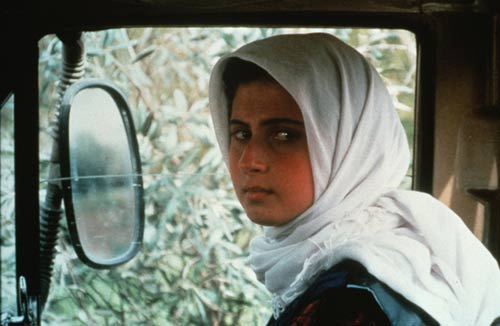
Iran also has movies that are not abstruse, but rather, deceptively simple and poignantly humanistic.
伊朗也有不那么難理解的電影,但看似簡單卻有著強(qiáng)烈的人文意味。
The 1997 family drama Children of Heaven, often translated as Small Shoes in Chinese, has warmed many Chinese hearts.
1997年的家庭劇情片《天堂的孩子》,通常也譯作《小鞋子》溫暖了很多中國人的心。
It is about a boy from a disenfranchised family who lost his little sister’s shoes and went through many adventures for a pair of replacement.
它講述了一個(gè)來自被剝奪了公民權(quán)家庭的小男孩丟失了妹妹的鞋子之后為得到一雙新鞋子歷盡磨難的故事。
On the Chinese website douban for reviews, the movie has a score of 9.1, averaged from over 100,000 viewers.
在中國的豆瓣網(wǎng)上,這部電影在超過10萬人的觀眾中平均評分高達(dá)9.1。
著眼于最真摯的人性
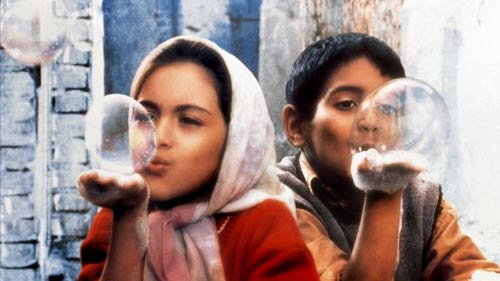
Zhang Yang, a Chinese film director, used Iranian cinema as a reference point: “I feel that you do not need to choose an anti-social or political subject to stand out, but rather, to discover the humanity in daily routines and trivialities, the kind of small things one takes for granted, and that will elevate you to a higher artistic status.”
一位叫張揚(yáng)的中國電影導(dǎo)演,使用伊朗電影作為參考。“我覺得沒有必要選擇反社會或者強(qiáng)調(diào)政治敏感的主題,而應(yīng)該著力于發(fā)現(xiàn)日常生活和瑣事中的人性,這類被認(rèn)為是理所當(dāng)然的小事恰恰能夠?qū)⒛闼偷揭粋€(gè)新的藝術(shù)高度。”
???下面是雙語君為大家推薦的6部優(yōu)秀的伊朗電影:
A Separation
《一次別離》
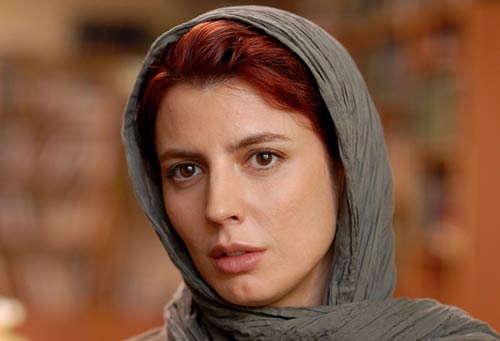
A married couple is faced with a difficult decision: to improve the life of their child by moving to another country or to stay in Iran and look after a deteriorating parent who has Alzheimer's disease.
一對已婚夫婦正面臨一個(gè)困難的決定:離開伊朗,提高孩子的生活質(zhì)量?或是留在伊朗,照顧老年癡呆病情不斷惡化的老父親?
The Wind Will Carry us
《隨風(fēng)而逝》

Irreverent city engineer Behzad comes to a rural village in Iran to keep vigil over a dying relative. In the meantime, the film follows his efforts to fit in with the local community and as a result, how he changes his own attitudes.
無禮的城市工程師為了給死去的親人守夜而來到一個(gè)鄉(xiāng)村。影片同時(shí)也關(guān)注了他努力融入當(dāng)?shù)厣畹倪^程以及他最后如何改變了自己的態(tài)度。
Taste of Cherry
《櫻桃的滋味》

An middle-aged man drives his truck in search of someone who will quietly bury him under a cherry tree after he commits suicide.
中年男子開車尋找一個(gè)能在他自殺后將他埋葬在櫻桃樹底下的人。
Children of Heaven
《小鞋子》

After a boy loses his sister's pair of shoes, he goes on a series of adventures to find them. When he can't, he tries a new way to "win" a new pair.
小男孩丟失了妹妹的鞋子,在后來的尋找過程中,經(jīng)歷了一系列的歷險(xiǎn)。當(dāng)他沒有能力找回鞋子時(shí),小男孩嘗試了新方法去“贏得”新的一雙。
Life and Nothing More/ And Life Goes on
《生生長流》
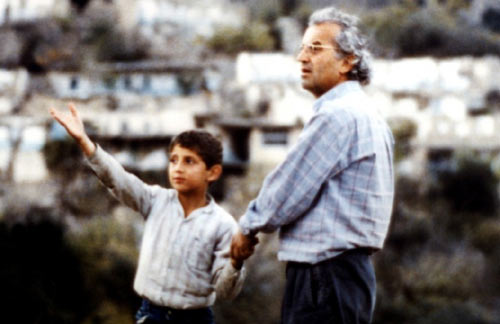
After the southwestern earthquake, the film director and his son travel to the devastated area to search for the actors in the movie the director made there a few years ago. In their search, they learn how people who had lost everything in the earthquake still have hope and try to rebuild their homes.
伊朗西北部大地震后,導(dǎo)演帶著兒子到被毀地區(qū)尋找?guī)啄昵暗难輪T。在尋找的過程中,他們發(fā)現(xiàn)在地震中失去一切的人們?nèi)杂猩畹南M⑴χ亟覉@。
Where is the Friend's Home
《何處是我朋友的家》
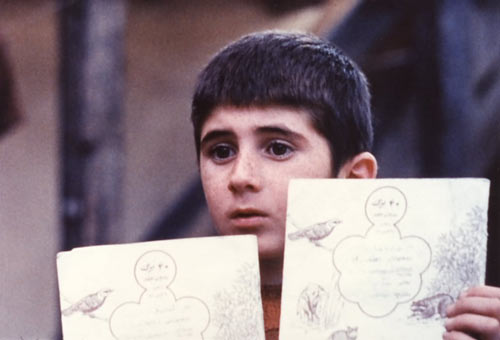
An 8-year-old boy makes every effort to return a friend's notebook he took by mistake, lest his friend be punished by expulsion from school.
8歲的小男孩為了使朋友免受開除出校的懲罰,盡一切努力歸還不小心拿錯(cuò)的作業(yè)本。
作者:周黎明
翻譯:王旭
編輯:王飛白<實(shí)習(xí)> 左卓 丹妮
上一篇 : 拍腦袋決定當(dāng)選澳年度熱詞
下一篇 : 英國國家電視獎(jiǎng)揭曉
分享到
關(guān)注和訂閱


關(guān)于我們 | 聯(lián)系方式 | 招聘信息
電話:8610-84883645
傳真:8610-84883500
Email: languagetips@chinadaily.com.cn